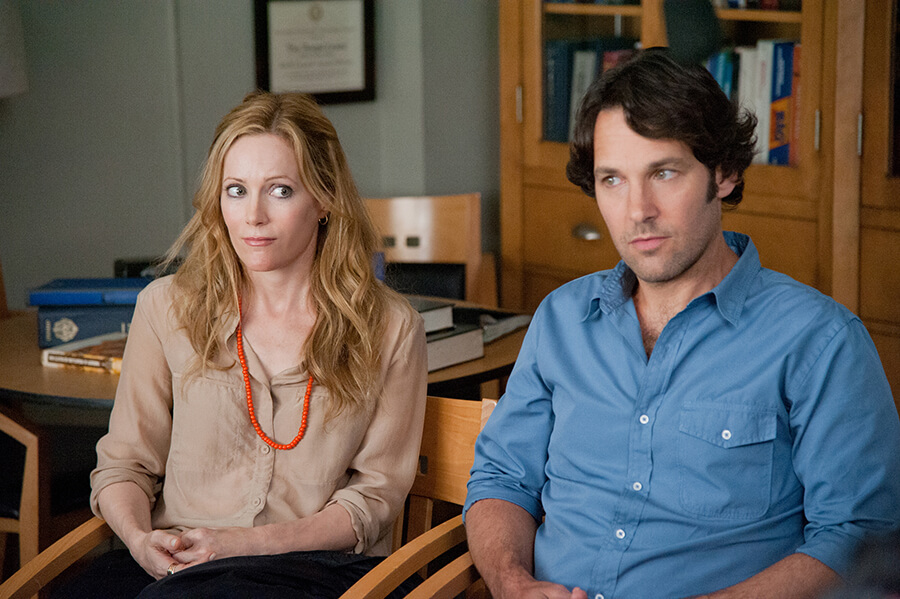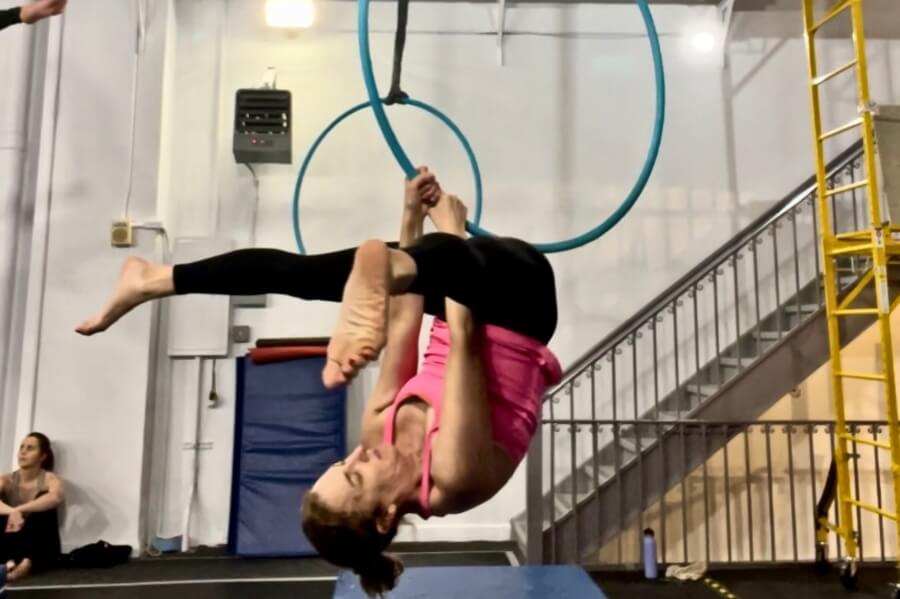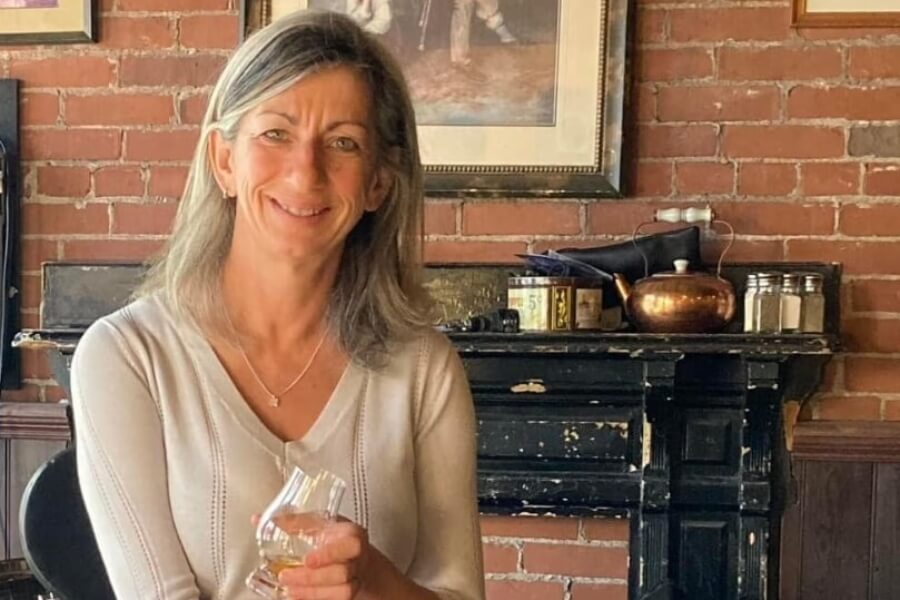In Judd Apatow’s movie This is 40, Paul Rudd and Leslie Mann play a long-married couple. My husband and I love the film, especially the scene that involves an intimate confession.
“You get so mad at me,” says Rudd. “Sometimes I think you want to kill me.”
“I do think about killing you,” admits Mann.
“How would you do it?”
“I’d slowly poison you,” she answers, noting that she’d enjoy his last days when he’d be sweet and needy. “Have you ever thought of killing me?” she counters.
“Sure,” he answers.
“How would you do it?” she asks.
“A wood chipper. Did you ever see Fargo?” And then he mimes the way her flesh would spray out of the machine.
Though my marriage to David has always been rock-solid, we laughed out loud at the scene and recounted it many times over the years. I guess we recognized parts of ourselves in the movie. You imagine your life would be so much easier once you no longer had to put up with your partner’s annoying habits. Would it kill him to clean the crumbs off the counter? And wouldn’t it be great to eat dinner with someone who is grateful to know there’s guacamole on his chin? And what woman hasn’t imagined that with her husband gone, she’d get out there and have incredible sex with strangers who wouldn’t snore afterwards? But of course you wouldn’t go through with it—that’s just a fantasy.
Read More: Saying Goodbye to Your Other Half
A Devastating Day
For me, that fantasy ended in late 2017 when David collapsed onto the floor of the AirBnB where we were vacationing in Florida—the day we were supposed to fly home to New York.
“My head! My head!” he cried, as he fell and curled into a fetal position while clutching the back of his skull. I stood over him in shock, watching as beads of sweat formed on his upper lip and tears pooled in his eyes. “This hurts so much,” he groaned.
Though I wanted to cry, I couldn’t.
I knew this was no ordinary headache, so I called 911. Within three minutes (which seemed like an eternity), paramedics arrived and David was rushed by ambulance to the hospital.
“It’s a cerebral hemorrhage, brought on by a ruptured aneurysm,” the ER doctors told me at the hospital. An interventional radiologist—a type of medical specialist I’d never even heard of—appeared and said he was going to take my husband for a procedure to stop the bleeding, and that he’d be back in an hour, if all went well.
I sank to the floor in the waiting room, shaking uncontrollably.
An hour later the doctor reappeared, but he didn’t deliver the good news I’d been awaiting. Instead, he said, “Let’s go talk over here,” and led me to an empty room.
David wasn’t fine. They’d discovered five aneurysms, all surrounding something called an arteriovenous malformation (AVM), a tangle of veins and arteries in his brain that had probably been there since birth. The doctor said he was going to run a catheter from David’s groin to his brain and inject glue into each aneurysm, which would shut them down.
If they didn’t do that, he said, David would be in grave danger of a brain hemorrhage. But there were risks to the procedure itself: My husband could have a stroke. He might wake up having lost control of control of his body movements. Or have seizures. Or die on the operating table. And one more thing: After this doctor finished with him, David would need to have open brain surgery to remove the AVM itself.
Though I wanted to cry, I couldn’t. A feeling of disbelief pushed back against the doctor’s words. This can’t be happening, was what my brain kept repeating to me.
Waiting, Wondering, Worrying
I waited, updating friends and family. As I tapped into my network of friends and relatives, I learned that the country’s top AVM surgeon was back in New York—and was willing to operate on David—if we could just get him there. If we could get through this first step.
Would we ever play tennis together again? Would he walk at all? Hell, would he even live?
Five hours after the procedure began, the Florida doctor appeared again. He had failed to conquer the aneurysms. He reached one, he said, but it ruptured as soon as he touched it, so he was pulling out. They were going to keep David overnight, do emergency surgery if necessary, and check his brain in the morning, hoping not to see any of the side effects that they had described.
As I listened to this, I began to shiver again in the waiting room chair, and the shaking didn’t stop no matter how many heated blankets kind nurses piled on top of me. Finally, they told me they were taking him to the Intensive Care Unit and that I’d be able to see him there.
I entered David’s ICU room slowly. First, I heard the soft whirring of hospital equipment. Then I fought the tears that stung my eyes as I saw David for the first time in 10 hours. Here was my fit, strong husband, lying in bed, unable to speak, and totally unaware of what was happening. Tubes ran in and out of him while monitors beeped and dinged and a nurse fussed with all of it.
Would we ever again bicycle through Europe, eating baguettes and sipping wine as we’d done just six weeks earlier? Would we ever play tennis together on a summer morning? Or walk through our beautiful neighborhood? Would he walk at all? Would he be a vegetable? Hell, would he even live?
Suspended in Disbelief
David and I had marked our 30th anniversary just eight weeks earlier—a milestone we’d celebrated at a party thrown by our daughters, and then on that fabulous European vacation. At the time he collapsed, we were actually feeling quite smug about how fantastic our lives were. Our adult daughters were thriving, our mortgage was paid, and we were enjoying good health, something we knew should not be taken for granted.
We had actually laughed about killing each other—it seemed unimaginable now.
“This can’t be how it ends,” I thought as I reached for David’s hand between IV cables and monitors. My daughters in Boston and LA were on their way to Florida—I knew they should be there, especially if it turned out that they needed to say goodbye to their father.
Before they arrived, I stood and stared at David’s sedated face. Thirty years, I thought. That’s a long time. That’s long enough to see two children graduate from college, long enough to lose four parents and a beloved dog, and long enough to have career success and failure and success again. It’s long enough to finish each other’s sentences and long enough to laugh till you cry simply by observing the same ridiculous thing at the same time without having to say a word.
But let’s face it, 30 years is also long enough to cause me to hide in another room at the sound of my husband’s voice, long enough for the sight of his face to do nothing but annoy me, and long enough for arguments about trivial things to become infuriating. And, it turns out, I can be pretty annoying too—forgetting to pay bills, losing my cell phone on a regular basis. In the midst of this, I remembered the scene from This Is 40. We had actually laughed about killing each other—it seemed unimaginable now.
Suddenly I wanted to take it all back and assure God that I didn’t really mean it. All I could think about was how I wouldn’t want to live without David. All I wanted was for him to get better.
My daughters arrived late that night, along with David’s brother. They quickly visited the ICU, and then we climbed into bed at a local hotel, silently praying that the next morning would bring good news.
When we got to the hospital, doctors had removed the tube from David’s throat and we were able to visit. “Am I gonna die?” he asked, when he saw all of us standing there.
“No, no,” I assured him, though of course I wasn’t sure. What to do next became a roller coaster of changing opinions and options, several of which left me quaking once again. With our family’s help, I decided that David should fly from Florida to New York for treatment. In the three days it took to make this decision, David’s headaches returned, and his anxiety about his health ratcheted up. On a very tense 2.5-hour flight to New York, I doled out medication and urged him to sleep. We went directly from the airport to the hospital where David was admitted to the Neuro-ICU. The next morning, he again had a five-hour procedure, but this time, all of the aneurysms were embolized.
“It’s a good thing you came up from Florida,” the surgeon later told me. “This was a very complicated case.”
Read More: Unhappily Ever After? How to Survive A Newly Retired Spouse
No More Murder Jokes

Leslie Mann and Paul Rudd’s characters in This Is 40 drove one another crazy—but they really couldn’t live without each other.
David had a rough recovery—headaches, poor balance, and coordination—but with some intense physical therapy, he managed to abandon his cane and his Frankenstein-like gait. Five weeks later, he had open brain surgery, and the AVM was successfully removed.
I’m probably the only wife who’s happy to hear her husband snore.
Now, more than a year later, David’s recovery still feels like a miracle every single day. As I cared for him during his convalescence—from the moment he collapsed to the time he said, finally, “I’m fine, you don’t need to sit here staring at me,” I realized that 30 years is a mere blip on the continuum of time when you face its possible end. This experience has been a hugely powerful lesson in never, ever taking my blessings for granted.
So even when my husband’s snoring sounds like a helicopter landing in our bedroom, I don’t jokingly imagine putting a pillow over his face. Instead, I stick in some earplugs and think I’m probably the only wife in America who is happy to hear her husband sawing logs. No wood chippers in sight.
***




















0 Comments